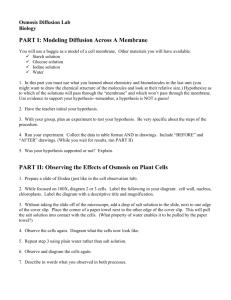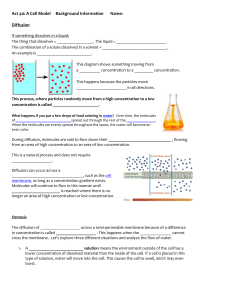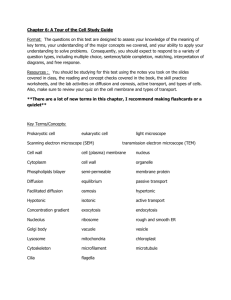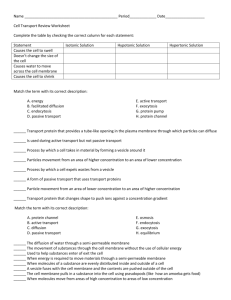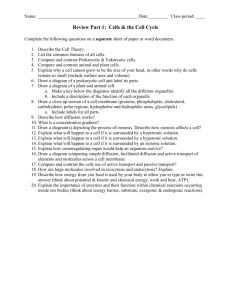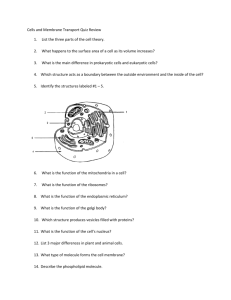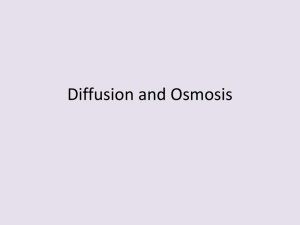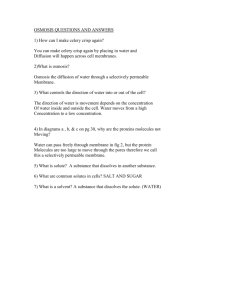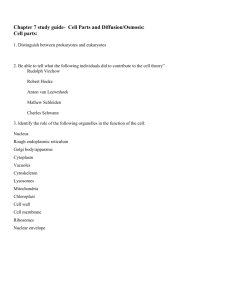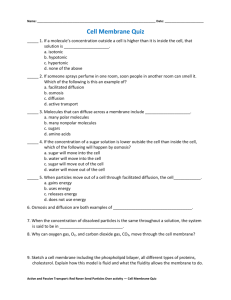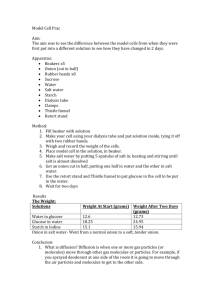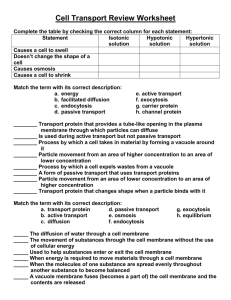Unit 5 Test Review
advertisement
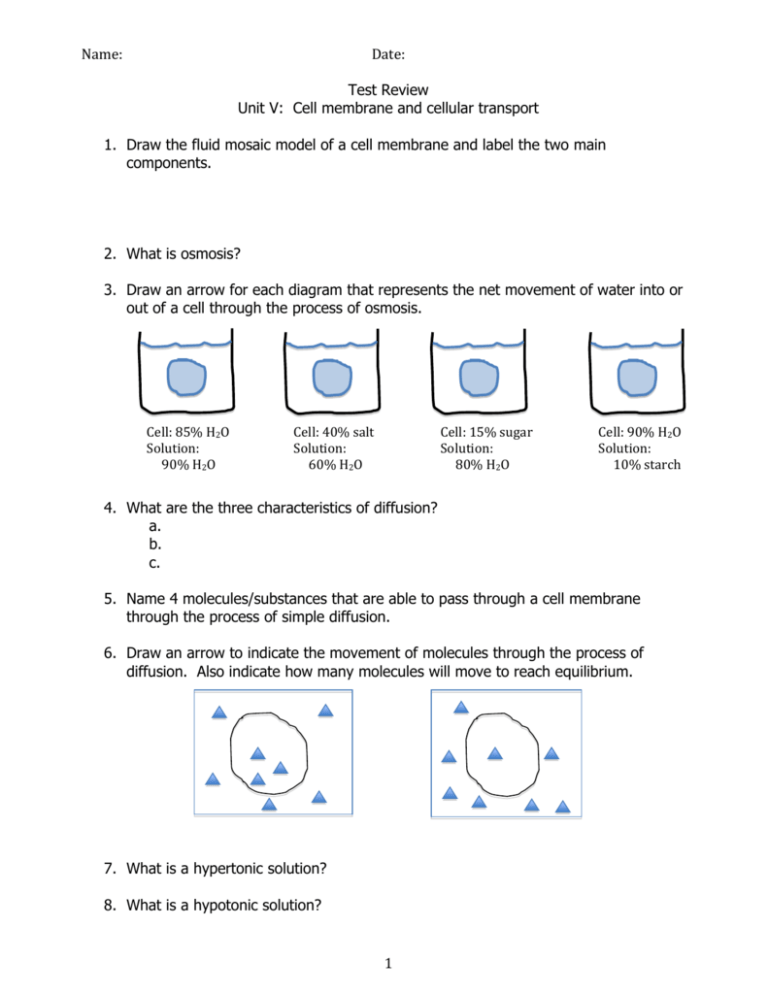
Name: Date: Test Review Unit V: Cell membrane and cellular transport 1. Draw the fluid mosaic model of a cell membrane and label the two main components. 2. What is osmosis? 3. Draw an arrow for each diagram that represents the net movement of water into or out of a cell through the process of osmosis. Cell: 85% H2O Solution: 90% H2O Cell: 40% salt Solution: 60% H2O Cell: 15% sugar Solution: 80% H2O Cell: 90% H2O Solution: 10% starch 4. What are the three characteristics of diffusion? a. b. c. 5. Name 4 molecules/substances that are able to pass through a cell membrane through the process of simple diffusion. 6. Draw an arrow to indicate the movement of molecules through the process of diffusion. Also indicate how many molecules will move to reach equilibrium. 7. What is a hypertonic solution? 8. What is a hypotonic solution? 1 Name: Date: 9. What is an isotonic solution? 10. What happens to a cell, in terms of water, when there is a/an: a. Greater concentration of salt inside the cell? b. Greater concentration of salt outside the cell? c. Equal concentration of salt inside and outside the cell? 11. What will happen to a plant cell when placed in: a. Salt water? b. Distilled water? c. Tap water? d. Pond water? 12. Which organelle in a plant is most affected by the process of osmosis? 13. Why do plant cells not burst when placed in a hypotonic solution? 14. By which process do plants (their roots) absorb nutrients/minerals from the surrounding soil? 15. Which organelle is responsible for water balance, gas exchange and excretion in a single celled organism? 16. What are the 3 characteristics of active transport? a. b. c. 17. What is ATP? 18. Draw an arrow to indicate the movement of molecules through the process of active transport. 19. In addition to cellular transport, what are 2 other jobs of the cell membrane? 2 Name: Date: 20. How are gases transported across a cell membrane? (i.e. which process) 21. Which of the following substances must be digested before they are able to diffuse into a cell? a. Water b. Protein c. Fat d. Starch 22. Which organelle maintains homeostasis in cells? 3
